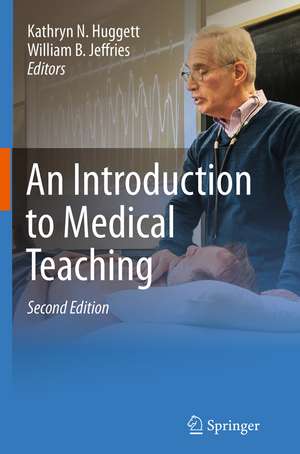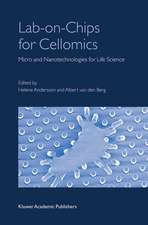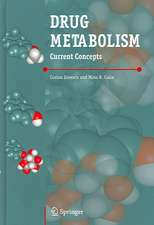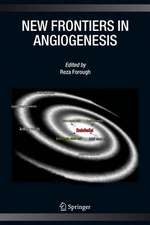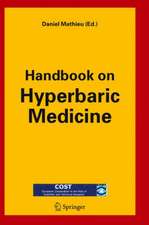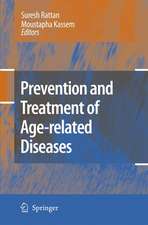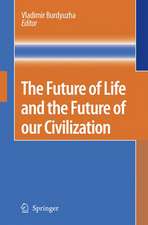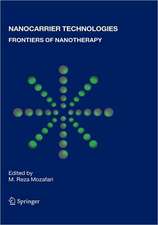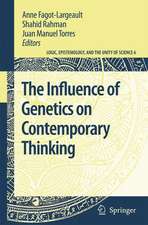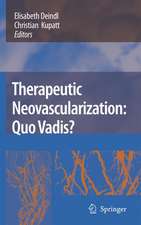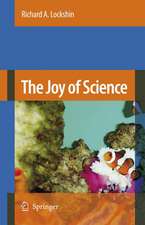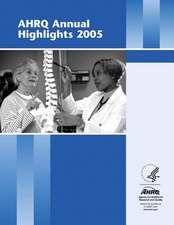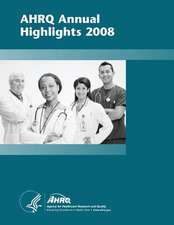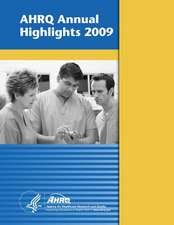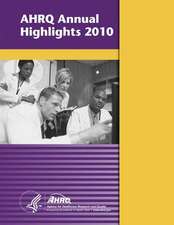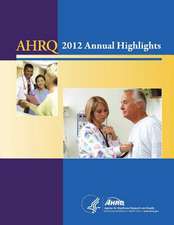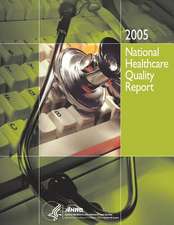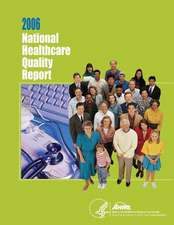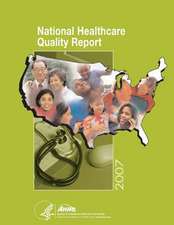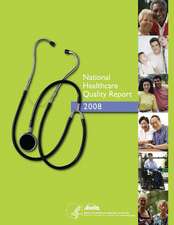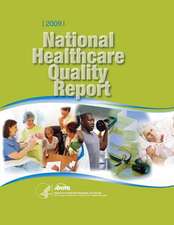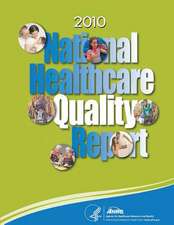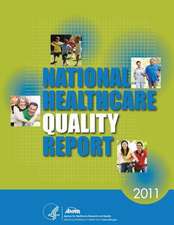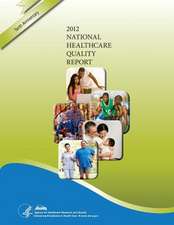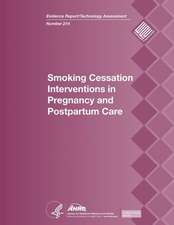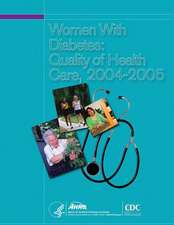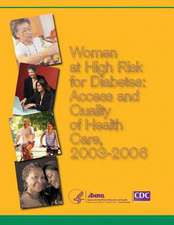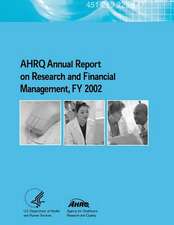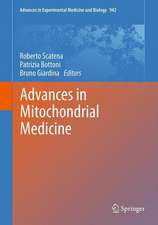An Introduction to Medical Teaching
Editat de Kathryn N. Huggett, William B. Jeffriesen Limba Engleză Paperback – 20 sep 2016
| Toate formatele și edițiile | Preț | Express |
|---|---|---|
| Paperback (1) | 463.00 lei 6-8 săpt. | |
| SPRINGER NETHERLANDS – 20 sep 2016 | 463.00 lei 6-8 săpt. | |
| Hardback (1) | 659.23 lei 6-8 săpt. | |
| SPRINGER NETHERLANDS – 18 iul 2014 | 659.23 lei 6-8 săpt. |
Preț: 463.00 lei
Preț vechi: 487.37 lei
-5% Nou
Puncte Express: 695
Preț estimativ în valută:
88.59€ • 96.54$ • 74.65£
88.59€ • 96.54$ • 74.65£
Carte tipărită la comandă
Livrare economică 23 aprilie-07 mai
Preluare comenzi: 021 569.72.76
Specificații
ISBN-13: 9789401777865
ISBN-10: 9401777861
Pagini: 285
Ilustrații: XIV, 271 p. 31 illus.
Dimensiuni: 155 x 235 x 15 mm
Greutate: 0.41 kg
Ediția:Softcover reprint of the original 2nd ed. 2014
Editura: SPRINGER NETHERLANDS
Colecția Springer
Locul publicării:Dordrecht, Netherlands
ISBN-10: 9401777861
Pagini: 285
Ilustrații: XIV, 271 p. 31 illus.
Dimensiuni: 155 x 235 x 15 mm
Greutate: 0.41 kg
Ediția:Softcover reprint of the original 2nd ed. 2014
Editura: SPRINGER NETHERLANDS
Colecția Springer
Locul publicării:Dordrecht, Netherlands
Cuprins
Preface.- Facilitating Student Learning.- Teaching Large Groups.- Teaching in Small Groups.- Flipping the Classroom.- Problem-Based Learning.- Team-Based Learning.- Teaching Clinical Skills.- Teaching with Simulation.- Teaching with Practicals and Labs.- Teaching with Technological Tools.- Teaching to Develop Scientific Engagement in Medical Students.- Designing a Course.- Establishing and Teaching Elective Courses.- Designing Global Health Experiences.- Assessing Student Performance.- Documenting the Trajectory of Your Teaching.- Teaching as Scholarship.- Appendix: Additional Information About Medical Education. Index.
Recenzii
“This is an introduction and guide to a spectrum of teaching approaches for medical education that go beyond the traditional lecture format. … The intended audience is anyone involved in medical education. … The authors have done an excellent job of introducing newer teaching techniques and approaches as well as providing a guide on how to develop and implement a variety of teaching techniques.” (Howard D. Weinberger, Doody’s Book Reviews, March, 2015)
“An introduction to Medical Teaching … is the best DIY manual I know for the medical teacher. … I recommend that anyone looking for a solid grounding in medical education methodology should read this book, and anyone intending to become a better medical teacher should assimilate its precepts. And, as this accessible and instructive book could well become a career-long guide, I suggest that medical teachers (my colleagues included) get one of their own.” (Sushil Dawka, Internet Journal of Medical Update, Vol. 10 (2), 2015)
“An introduction to Medical Teaching … is the best DIY manual I know for the medical teacher. … I recommend that anyone looking for a solid grounding in medical education methodology should read this book, and anyone intending to become a better medical teacher should assimilate its precepts. And, as this accessible and instructive book could well become a career-long guide, I suggest that medical teachers (my colleagues included) get one of their own.” (Sushil Dawka, Internet Journal of Medical Update, Vol. 10 (2), 2015)
Notă biografică
Kathryn N. Huggett, Ph.D., is Assistant Dean for Medical Education, Director of Medical Education Development and Assessment and Associate Professor of Medicine at Creighton University School of Medicine. She directs medical education evaluation and research activities and works with faculty to promote educational scholarship. In addition, she teaches medical and graduate students. Dr. Huggett has worked in medical education continuously since 1992. She is a former President of the Society of Directors of Research in Medical Education (SDRME) and the society’s current representative to the Association of American Medical Colleges (AAMC) Council of Faculty and Academic Societies. She also serves as Chair of the Steering Committee for the AAMC Medical Education Research Certificate (MERC) program. Her current interests include inter professional education, evaluation of online curricula, active learning strategies and academic program quality. William Jeffries, Ph.D., F.A.H.A, is the Senior Associate Dean for Medical Education and Associate Professor of Pharmacology at the University of Vermont College of Medicine. He has taught medical, graduate and other health sciences students continuously since 1981, winning several awards for his teaching. Dr. Jeffries has over one hundred research and medical education publications and has conducted numerous faculty development workshops and presentations on various aspects of medical education. He is an active Board Member of the International Association of Medical Science Educators, a Fellow of the American Heart Association and a former Chair of the Division for Pharmacology Education of the American Society for Pharmacology and Experimental Therapeutics. His current interests include incorporation of active learning and technology into the medical curriculum, implementation strategies for curricular change and novel ways to teach clinical competency.
Textul de pe ultima copertă
Few faculty members in academic medical centers are formally prepared for their roles as teachers. This work is an introductory text designed to provide medical teachers with the core concepts of effective teaching practice and information about innovations for curriculum design, delivery and assessment. It offers brief, focused chapters with content that is assimilated easily by the reader. The topics are relevant to basic science and clinical teachers and the work does not presume readers possess prerequisite knowledge of education theory or instructional design. The authors emphasize the application of concepts to teaching practice. Topics include: Facilitating Student Learning; Teaching Large Groups; Teaching in Small Groups; Flipping the Classroom; Problem-Based Learning; Team-Based Learning; Teaching Clinical Skills; Teaching with Simulation; Teaching with Practicals and Labs; Teaching with Technological Tools; Teaching to Develop Scientific Engagement in Medical Students; Designing a Course; Establishing and Teaching Elective Courses; Designing Global Health Experiences; Assessing Student Performance; Documenting the Trajectory of Your Teaching and Teaching as Scholarship.
This is a complete revision of the first edition of this work with new chapters and up to date information. Similar to the first edition, chapters were written by leaders in medical education and research who draw upon extensive professional experience and the literature on best practices i
n education. Although designed for teachers, the work reflects a learner-centered perspective and emphasizes outcomes for student learning. The book is accessible and visually interesting and the work contains information that is current, but not time-sensitive. Each chapter concludes with references, many include recommendations for additional reading, and the work includes an appendix with resources for medical education.
This is a complete revision of the first edition of this work with new chapters and up to date information. Similar to the first edition, chapters were written by leaders in medical education and research who draw upon extensive professional experience and the literature on best practices i
n education. Although designed for teachers, the work reflects a learner-centered perspective and emphasizes outcomes for student learning. The book is accessible and visually interesting and the work contains information that is current, but not time-sensitive. Each chapter concludes with references, many include recommendations for additional reading, and the work includes an appendix with resources for medical education.
Caracteristici
It offers brief, focused chapters with content that is assimilated easily by the reader The topics are relevant to basic science and clinical teachers The authors emphasize the application of concepts to teaching practice It does not presume readers possess prerequisite knowledge of education theory or instructional design Includes supplementary material: sn.pub/extras
